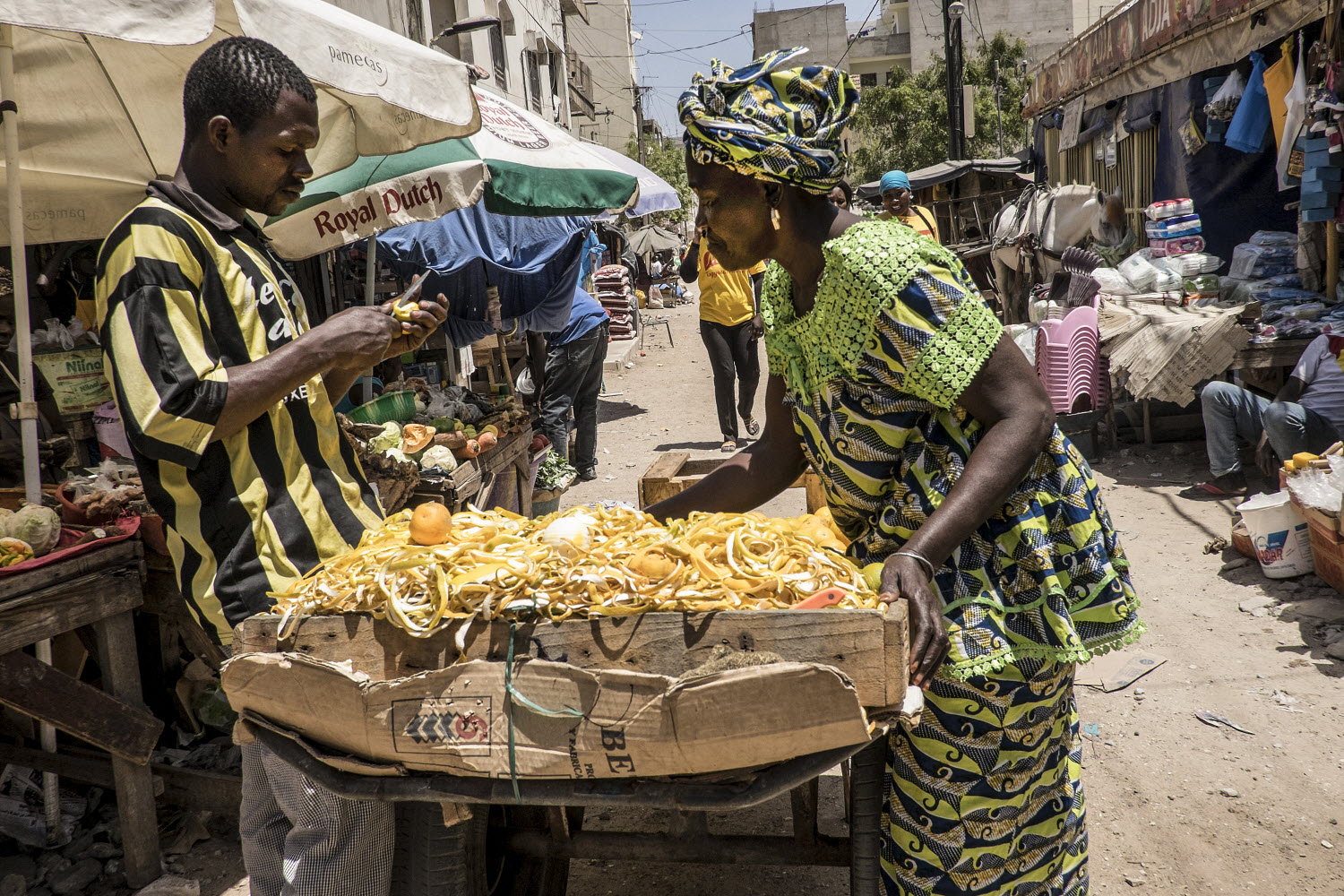Moving ahead with the sustainable and inclusive transformation of agri-food systems
 Market in Senegal
Market in SenegalTo coincide with the publication of the results of the global Food System Assessment (FSA) undertaken by the European Union, FAO and the agricultural research centre for international development (CIRAD) in cooperation with national governments, a high-level webinar was held on 20 January as part of the EU's Infopoint series.
The event, which gathered nearly 200 participants, had a specific focus on the African continent with results being presented for Senegal and the Democratic Republic of Congo (DRC) by high-level government representatives as well as technical experts. Indeed the assessments looked at food systems in their very country context. "Each country and each food system has its own set of complexities which we tried to identify through these assessments to better understand what course of action and policies to support", said Mohamed Manssouri, Director of FAO's Investment Centre.
The Food System Assessments combined quantitative evidence and qualitative appraisal along with with stakeholders' consultations, involving the public and private sectors, civil society, and academia.
In DRC, with only 1 percent of the 80 million hectares of arable land currently in use, the country has a huge potential in terms of agriculture, and yet it suffers from acute levels of food insecurity. The road network is in poor condition and not sufficiently developed to improve the marketing of agriculture produce, while mining represents the greatest share of the economic activities. "In DRC, we see as a solution to promote family agriculture and agri-food entrepreneurship, as well as secure land tenure, improve access to finance and develop infrastructure to boost the internal market. We need to reduce food insecurity and reliance on food imports," said Julie Tshilombo, Special Representative of DRC Presidency, who attended the Webinar as Keynote Speaker.
In contrast, in Senegal, expansion of arable land has reached its limit, the soil is depleted, and water resources are declining. Between 2000 and 2015, the country has been losing 40,000 hectares of arable land per year. In terms of food security, the inequalities are growing between poor rural areas and more affluent urban settings where people benefit from greater food diversity. A key question is how to feed the Senegalese population while limiting dependence on imports, reversing depletion of natural resources, and providing attractive jobs for young people.
FSA findings will inform new policies and contribute to improving the quality of private and public investments. Investments that are critical to make food systems more sustainable and inclusive. The end goal is to ensure the availability and affordability of safe, nutritious, and healthy food for all, and guarantee a more equitable distribution of wealth and resources, while preserving the environment, in view of reaching the Sustainable Development Goals (SDGs) by 2030.
